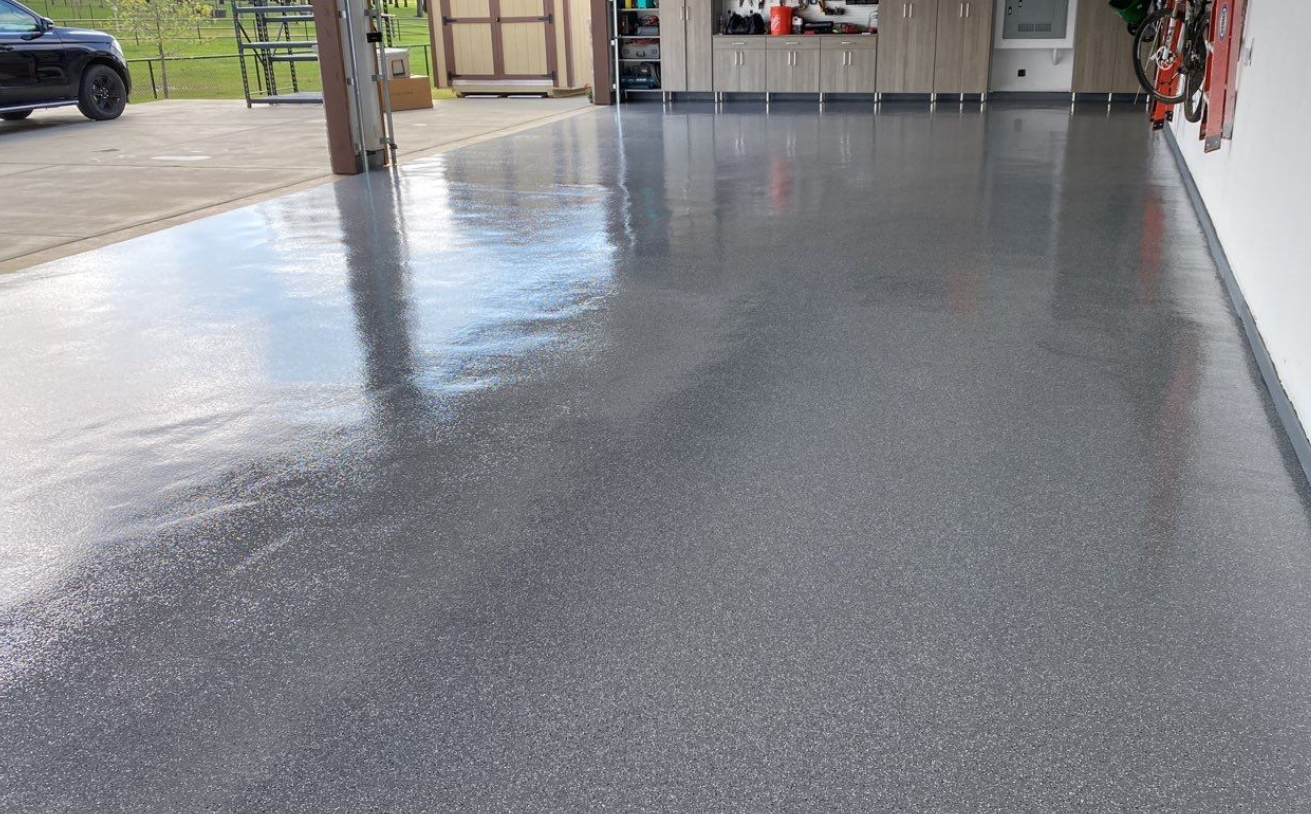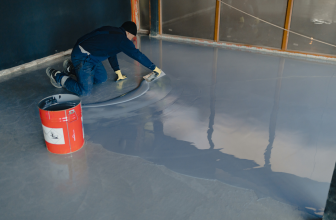Is Epoxy Floor Coating Toxic? A Comprehensive Review of Health and Environmental

Is Epoxy Floor Coating Toxic! Epoxy floor coating has become a popular choice for industrial, commercial, and even residential settings due to its durability, aesthetics, and ease of maintenance. However, concerns have been raised about the potential toxicity of epoxy floor coatings, leading many to question whether this widely-used flooring option poses any health or environmental risks. In this article, we will delve into the various components of epoxy floor coatings, examine the potential sources of toxicity, and assess the overall impact on human health and the environment.
Table of Contents
Is Epoxy Floor Coating Toxic?
Epoxy floor coating is not toxic when it has fully cured and hardened. However, during the installation process, there may be potential toxicity concerns due to the release of volatile organic compounds (VOCs) and other fumes. Ensuring proper ventilation and following safety guidelines during installation is essential to minimize potential risks. Once cured, epoxy floor coatings are considered safe for regular use and pose no toxicity concerns to occupants of the space.
Understanding Epoxy Floor Coatings
Epoxy floor coatings blend resins and hardeners that chemically react to create a dense, smooth, and durable surface. When applied to concrete or other substrates, epoxy coatings form a strong bond resistant to chemicals, stains, and wear. This makes them highly desirable for industrial settings, garage floors, commercial spaces, and residential basements.
Components of Epoxy Floor Coatings
The primary components of epoxy floor coatings are epoxy resins and polyamine hardeners. These components are typically mixed in specific ratios to initiate the curing process, which forms the solid, protective surface. Additionally, epoxy floor coatings may contain various additives, such as pigments for coloration, fillers for texture, and solvents for ease of application.
Potential Sources of Toxicity
While epoxy floor coatings are generally considered safe when fully cured and hardened, concerns about toxicity arise during the installation and curing process. Some potential sources of toxicity include:
Volatile Organic Compounds (VOCs): Certain epoxy coatings may release VOCs during curing, especially when solvent-based epoxy formulations are used. VOCs can contribute to indoor air pollution and cause respiratory irritation and other health issues.
Isocyanates: Some epoxy formulations contain isocyanates, known as respiratory sensitizers, which can lead to occupational asthma in susceptible individuals.
Dust and Fumes during Application: During installation, sanding, or grinding of epoxy coatings, fine dust, and fumes may be generated, which can be harmful if inhaled or come into contact with the skin.
Chemical Sensitivities: Individuals with pre-existing chemical sensitivities may experience adverse reactions when exposed to uncured epoxy fumes or residues.
Health Implications
When epoxy floor coatings are fully cured and hardened, the risk of toxicity significantly decreases. However, during the installation process, workers and occupants of the space may be exposed to potential health risks. Short-term exposure to uncured epoxy fumes can cause symptoms like eye and respiratory irritation, dizziness, and headaches. Prolonged exposure or chronic inhalation of VOCs and other chemicals may lead to more severe health issues in susceptible individuals.
Environmental Impact
The environmental impact of epoxy floor coatings largely depends on the specific formulation and how they are handled during installation. Solvent-based epoxy coatings have a higher ecological impact due to the release of VOCs, which contribute to air pollution and can harm ecosystems. However, modern water-based epoxy formulations and low-VOC alternatives have been developed to reduce environmental impact.
Regulations and Safety Measures
Regulatory agencies have established guidelines and safety measures for epoxy floor coatings in response to health and environmental concerns. In many regions, there are limits on the allowable VOC content in epoxy products. Contractors and installers are advised to use proper personal protective equipment (PPE) during installation and ensure adequate ventilation to minimize exposure to fumes and dust.
Conclusion
Epoxy floor coatings are famous for various applications due to their durability and versatility. While concerns about toxicity exist during the installation process, proper handling and adherence to safety guidelines can mitigate potential risks. For those with pre-existing health conditions or sensitivities, consulting with professionals and choosing low-VOC epoxy formulations is essential. Ultimately, epoxy floor coatings can be a safe and effective flooring solution when used responsibly, benefitting both indoor spaces and the environment.








